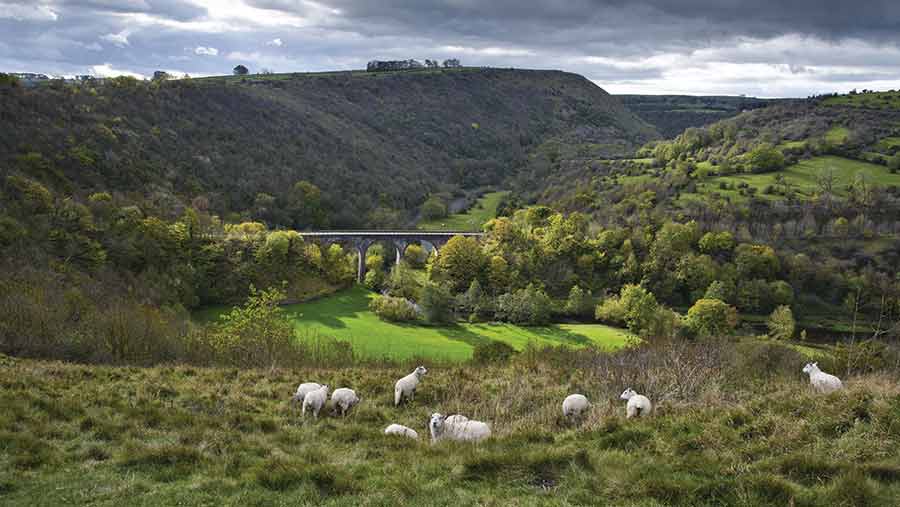Countryside Stewardship scheme ‘not fit for purpose’
 © FLPA/REX Shutterstock
© FLPA/REX Shutterstock Disillusioned farmers have called for a root-and-branch review of the government’s fledgling Countryside Stewardship scheme – warning that it is not fit for purpose.
Natural England received only 2,314 mid-tier applications to the new scheme, which closed on 30 September. Many farmers chose not to apply – blaming stringent rules and regulations that made it difficult to put a claim together.
See also: Only 2,314 farmers made mid-tier stewardship applications
NFU environment forum chairman Mark Pope said the union had been told Natural England would have liked 3,000-4,000 applications to the scheme, which is the successor to entry-level and higher-level environmental stewardship.
“There is already huge disillusionment with the new scheme.”
Mark Pope, NFU
“When you draw that against the fact there are 11,000 ELS applications that are coming to an end, I believe it is a real shame,” Mr Pope told an NFU Council meeting at Stoneleigh Park, Warwickshire, on Tuesday 13 October.
It follows warnings from both the NFU and the RSPB that a lower-than-anticipated number of stewardship applications would threaten to have a detrimental effect on some of England’s most important landscapes and rural areas.
“There is already huge disillusionment with the new scheme,” said Mr Pope. “It is being talked about by all members and across all sectors – but notably grassland farmers and in the uplands, where there is huge disadvantage.”
The extent of disenchantment among farmers will be laid bare when results from an NFU member survey are published later this month. Problems already highlighted by farmers include an IT system that isn’t fit for purpose and overly burdensome record-keeping.
It was important that the scheme continued, said Mr Pope, but it was too complex and poorly designed.
Considerable improvement was needed to make it more attractive to farmers. “What is available at the moment just isn’t good enough,” he said.
Natural England, the government conservation body that oversees the new scheme, insisted it was pleased with the quality and quantity of applications received. Those applications were now being assessed to see how many would qualify for funding.
“This is a brand-new scheme,” said a Natural England spokeswoman. “The applications submitted include high-quality ones that will do the most to improve water quality and the farmed environment.”
Successful applicants will be offered an agreement with a start date of 1 January 2016. In the meantime, the deadline for higher-tier stewardship applications is 31 October.
